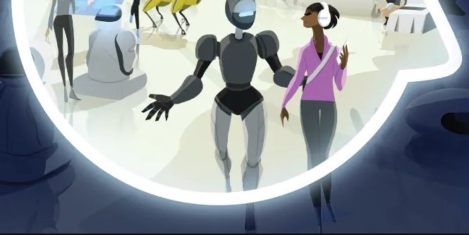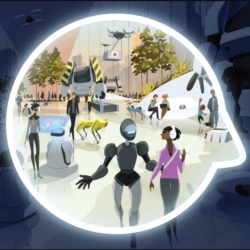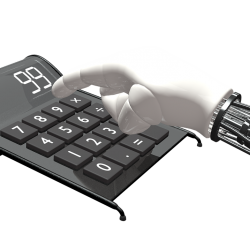To provide the best experiences, we use technologies like cookies to store and/or access device information. Consenting to these technologies will allow us to process data such as browsing behaviour or unique IDs on this site. Not consenting or withdrawing consent, may adversely affect certain features and functions.
The technical storage or access is strictly necessary for the legitimate purpose of enabling the use of a specific service explicitly requested by the subscriber or user, or for the sole purpose of carrying out the transmission of a communication over an electronic communications network.
The technical storage or access is necessary for the legitimate purpose of storing preferences that are not requested by the subscriber or user.
The technical storage or access that is used exclusively for statistical purposes.
The technical storage or access that is used exclusively for anonymous statistical purposes. Without a subpoena, voluntary compliance on the part of your Internet Service Provider, or additional records from a third party, information stored or retrieved for this purpose alone cannot usually be used to identify you.
The technical storage or access is required to create user profiles to send advertising, or to track the user on a website or across several websites for similar marketing purposes.
 Cornerstone OnDemand have published a new workforce trends report from the Cornerstone People Research Lab (CPRL) titled A License to Skill: Embracing the Reskilling Revolution. The research report claims that while organisational leaders and employees have rallied around the importance of skills, there remains a confidence gap in the efficacy of skills-based learning programmes that advance careers and innovation in the business. (more…)
Cornerstone OnDemand have published a new workforce trends report from the Cornerstone People Research Lab (CPRL) titled A License to Skill: Embracing the Reskilling Revolution. The research report claims that while organisational leaders and employees have rallied around the importance of skills, there remains a confidence gap in the efficacy of skills-based learning programmes that advance careers and innovation in the business. (more…)








 Organisations that favour agile working and make strategic investments in human capital during the coronavirus crisis will be best positioned to gain market share and overtake competitors, according to a new Talent Trends report released by Randstad Sourceright.
Organisations that favour agile working and make strategic investments in human capital during the coronavirus crisis will be best positioned to gain market share and overtake competitors, according to a new Talent Trends report released by Randstad Sourceright. 


 A new study by Mercer claims the COVID-19 pandemic and subsequent uncertainty are accelerating changes in the way organisations around the world are working and will continue to work into the future. Particularly in challenging times, employers are focusing on their workforce, specifically fostering healthy lifestyles, supporting financial wellness and providing skills and training as careers change due to AI and technology developments.
A new study by Mercer claims the COVID-19 pandemic and subsequent uncertainty are accelerating changes in the way organisations around the world are working and will continue to work into the future. Particularly in challenging times, employers are focusing on their workforce, specifically fostering healthy lifestyles, supporting financial wellness and providing skills and training as careers change due to AI and technology developments. 
 Organisations across Europe are facing a skills challenge caused by digital transformation, with many struggling to keep pace with learning and development (L&D) needs, claims research from
Organisations across Europe are facing a skills challenge caused by digital transformation, with many struggling to keep pace with learning and development (L&D) needs, claims research from 
 The UK is ignoring the value of millions of workers by overlooking workplace training and opportunities to upskill, a new survey has suggested. According to the
The UK is ignoring the value of millions of workers by overlooking workplace training and opportunities to upskill, a new survey has suggested. According to the 
 Nearly two-thirds of financial services leaders expect to be mass adopters of AI in two years compared to just 16 percent harnessing it today, a
Nearly two-thirds of financial services leaders expect to be mass adopters of AI in two years compared to just 16 percent harnessing it today, a 












